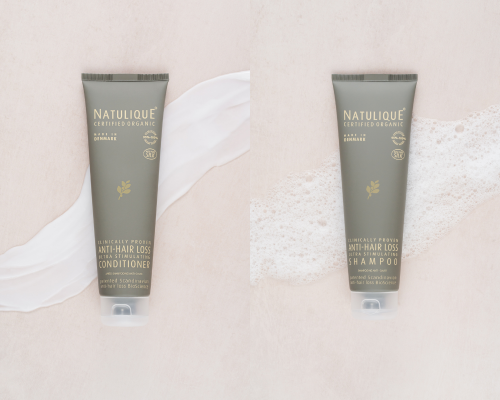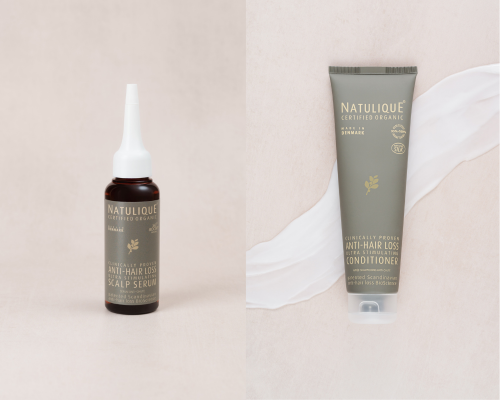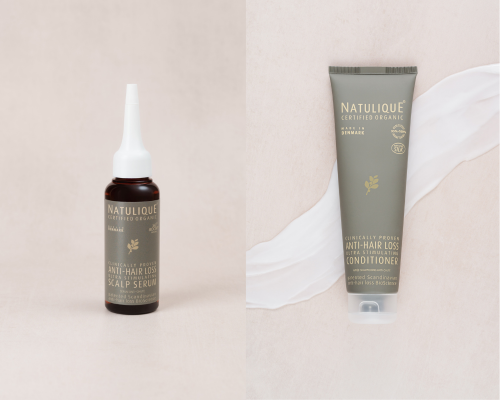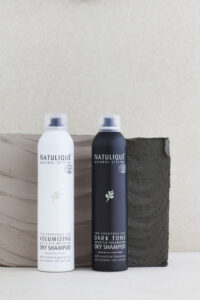Combating hair loss is a major concern for many individuals, both men and women, who are desperately seeking solutions to restore thick, healthy hair. Understanding and adopting an effective hair care routine is essential to addressing this problem in a targeted manner. But before taking action, it is essential to identify the underlying causes of hair loss in order to adopt appropriate strategies. Here are a few tips to help you better understand the reasons for hair loss.
Identifying the cause of hair loss
Analysis of genetic factors
Heredity of hair loss
Genetics play a significant role in the likelihood of losing your hair. Studies show that androgenetic alopecia, known as hereditary baldness, is a common cause of hair loss in both men and women. This type of hair loss often runs in families, meaning that if a close relative suffers from baldness, the likelihood increases for their direct descendants.
Genetic predispositions
Beyond heredity, some individuals have genetic predispositions that influence hair follicle structure, hair growth cycle, or hair sensitivity to hormones. These factors can also increase the risk of hair loss by accelerating the hair's life cycle or making it thinner and more fragile.
Impacts of environmental factors
Stress and hair loss
Stress is a major environmental factor contributing to hair loss. Stressful events can disrupt the hair growth cycle, leading to increased hair loss known as telogen effluvium. Prolonged stress can also intensify scalp problems, such as irritation, thereby promoting more pronounced hair loss.
Effects of diet and lifestyle
An unbalanced diet or nutritional deficiencies in essential vitamins and minerals can affect hair health. For example, deficiencies in iron, vitamin D, or biotin are often associated with increased hair loss. In addition, unhealthy lifestyle habits such as smoking, excessive alcohol consumption, and lack of physical activity can indirectly affect hair quality and density by impacting hormonal balance and blood flow to the scalp.
Identifying the specific cause of hair loss is a crucial step in developing an appropriate treatment strategy. This in-depth understanding helps to target the necessary interventions, whether in the form of medical treatment, lifestyle changes, or the use of appropriate hair care products, to slow down or even reverse the natural trend of hair loss.

Choose suitable hair care products
Use of anti-hair loss shampoos and conditioners
Choosing the right shampoo
Choosing the right shampoo is crucial in the fight against hair loss. Shampoos designed to prevent hair loss often contain active ingredients such as biotin, caffeine, or zinc pyrithione. These components strengthen hair follicles and stimulate hair growth by promoting microcirculation in the scalp. When choosing a shampoo, opt for those specifically labeled as anti-hair loss, sulfate-free, and paraben-free, as they offer gentle cleansing without aggravating hair fragility.
Importance of conditioner
To complement the effect of shampoo, using conditioner is essential. A good anti-hair loss conditioner moisturizes the scalp and improves hair texture, while preventing breakage. Look for products that contain keratin proteins; they help repair damaged hair and strengthen its internal structure. In addition, a conditioner rich in vitamins E and B5 provides essential nutrients for better hair elasticity and resilience, reducing the risk of breakage.
Use of additional hair care products
Hair masks and anti-hair loss treatments
Nourishing hair masks and specific treatments play a supporting role in reducing hair loss. These products are often infused with natural oils such as castor oil or argan oil, which are known for their ability to strengthen and deeply moisturize hair. Regular application of a hair mask, once or twice a week, helps replenish lost nutrients and promotes the reconstruction of damaged hair. In addition, it is a good idea to incorporate leave-in treatments that protect and stimulate the scalp, promoting hair cell regeneration.
Dietary supplements for healthy hair
In addition to topical products, supporting hair health from within with dietary supplements can be beneficial. Supplements such as biotin, zinc, omega-3s, and B vitamins strengthen hair's natural resistance and encourage growth. Ensure your diet is rich in protein, iron, and vitamins, or consider taking supplements to fill any gaps. However, always consult a healthcare professional before starting any supplementation regimen to avoid unwanted interactions or overdoses.
Choosing the right hair care products is essential for preventing and combating hair loss. Each type of product, from shampoo to dietary supplements, plays a crucial role in improving overall hair health. Consistent and appropriate use of these products, tailored to your hair type and individual needs, is an important step toward reducing hair loss and maintaining healthy, strong hair.
See also: What routine should you adopt for well-defined curls?
Adopt a healthy hair routine
Regular cleaning and maintenance
Hair washing frequency
The frequency of hair washing should be adapted to each scalp type and daily activity. Washing too frequently can strip the scalp of its essential natural oils, leading to brittle hair and increased hair loss. It is generally recommended to wash your hair two to three times a week, but this frequency may vary if you have a particularly oily or dry scalp. Using lukewarm water rather than hot water helps to preserve the natural sebum balance.
Hair brushing techniques
Proper brushing is crucial for maintaining healthy hair. Choose natural bristle brushes to reduce breakage and stimulate blood circulation in the scalp. Start by detangling the ends before gradually working your way up to the roots, which minimizes tension and breakage. In addition, it is advisable to brush hair when it is dry to prevent wet strands, which are more vulnerable, from deteriorating.
Incorporate healthy habits for your hair
Hair protection
Protecting your hair from external aggressions is essential to maintaining its integrity. Avoid frequent use of heated styling tools such as hair dryers, straighteners, or curling irons. If you must use them, apply a heat protectant beforehand to limit damage. When exposed to the sun, wear a hat or use a UV protection spray to prevent your hair from drying out and fading.
The choice of hair accessories is also important; avoid tight elastic bands that can break hair, and opt for soft fasteners such as fabric scrunchies. At night, use a satin or silk pillowcase to reduce friction and keep hair smooth and tangle-free.
In addition, massage your scalp regularly to stimulate blood circulation and strengthen hair follicles. This simple habit can help reduce hair loss and promote healthier growth. It is also recommended to limit harsh chemical treatments such as frequent coloring or straightening, which can damage the hair cuticle and weaken its structure.
Adopting a healthy hair care routine involves implementing practices and habits that respect the nature and characteristics of your hair. Listening to your hair's needs and treating it with care by following these steps will help minimize hair loss and improve its appearance and overall health. By gradually incorporating these practices into your daily routine, you'll be on your way to maintaining strong, shiny hair.
Avoid factors that aggravate hair loss
Reducing chemical treatments
Limit the use of coloring agents
One way to reduce hair loss is to limit chemical treatments, such as frequent coloring. The harsh chemicals in hair dyes can damage the hair cuticle, leading to brittleness and increased hair loss. Opt for ammonia-free hair dyes and reduce the frequency of use to minimize damage. Alternatively, consider using plant-based hair dyes, which are less harsh on your hair.
Warn about the dangers of perms and hair straightening
Perms and straightening treatments expose your hair to powerful chemicals that alter its structure. These treatments can weaken the hair, leading to breakage and hair loss. If possible, avoid these processes or limit them to special occasions. Look for gentler alternatives or treatments that do not use harsh chemicals.
Minimize exposure to heat
Reduce the use of heating appliances
Excessive use of heated styling tools such as straighteners, hair dryers, and curling irons can dry out and damage your hair, leading to hair loss. Opt for heat-free styles as often as possible and let your hair dry naturally. If you must use heated styling tools, be sure to apply a heat protectant to create a barrier between the heat and your hair.
Solutions for heat-free styling
To limit heat styling, experiment with heat-free styling techniques. Consider methods such as braids, buns, and non-heated rollers. These styles not only protect your hair but also add variety and texture to your look.
Managing psychological influences
Dealing with emotional stress
Mental and emotional stress can contribute to hair loss. Practicing stress management techniques, such as meditation or yoga, can help minimize negative impacts. Take time to relax every day to improve not only your overall well-being, but also the health of your hair.
Consult an expert if necessary
If you are experiencing significant emotional distress related to hair loss, consider consulting a specialist. They can help you identify the underlying factors contributing to the situation and provide you with appropriate solutions.
FAQ
- Q: What is the ideal frequency for washing your hair to prevent hair loss?
A: Two to three times a week, depending on your scalp type.
- Q: Can hair accessories affect hair loss?
A: Yes, avoid tight elastic bands and opt for soft fasteners such as fabric scrunchies.
- Q: Is it important to use a heat protector?
A: Yes, it limits the damage caused by heating appliances.
- Q: Should you see a doctor for hair loss?
A: Yes, if the hair loss is persistent and there is no apparent cause.
- Q: Are dietary supplements effective for hair health?
A: They can be beneficial, but consult a professional before starting a supplementation regimen.




